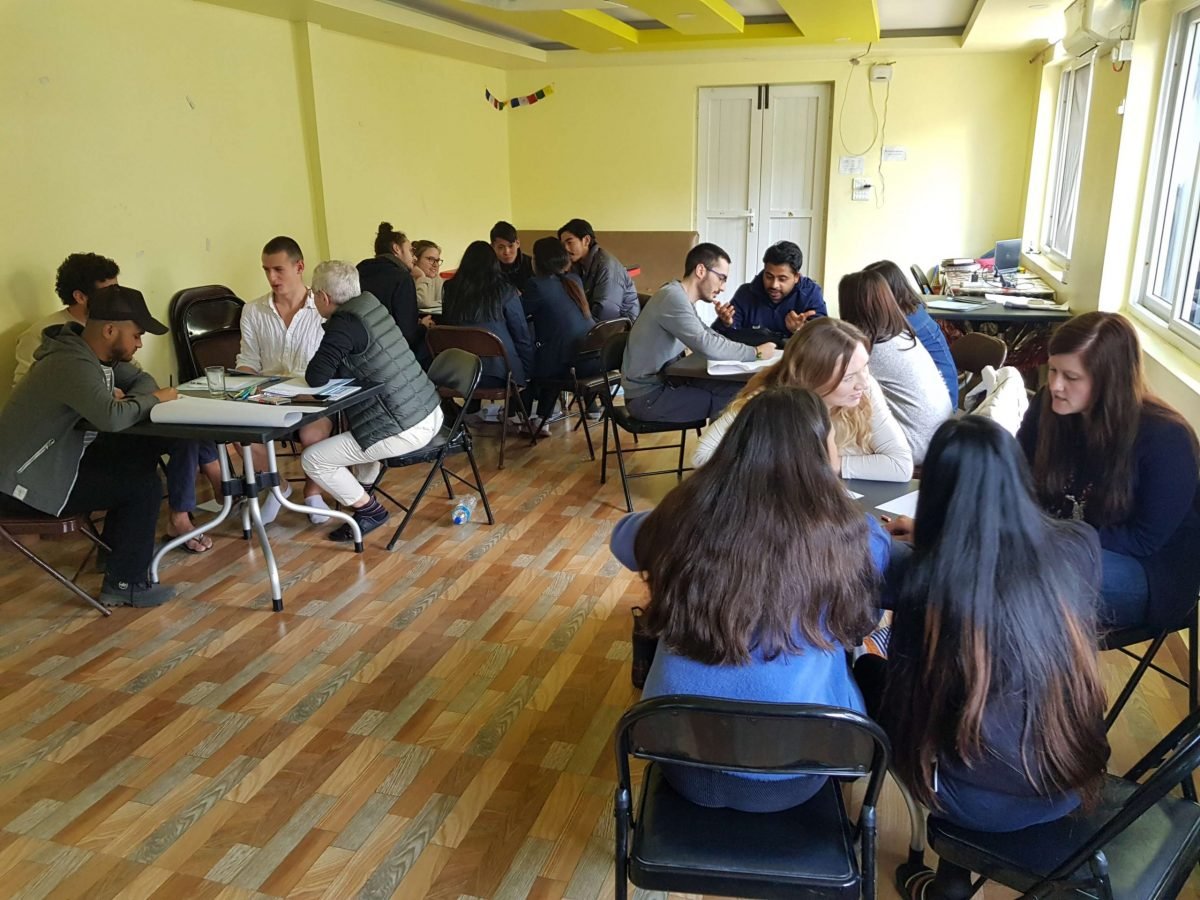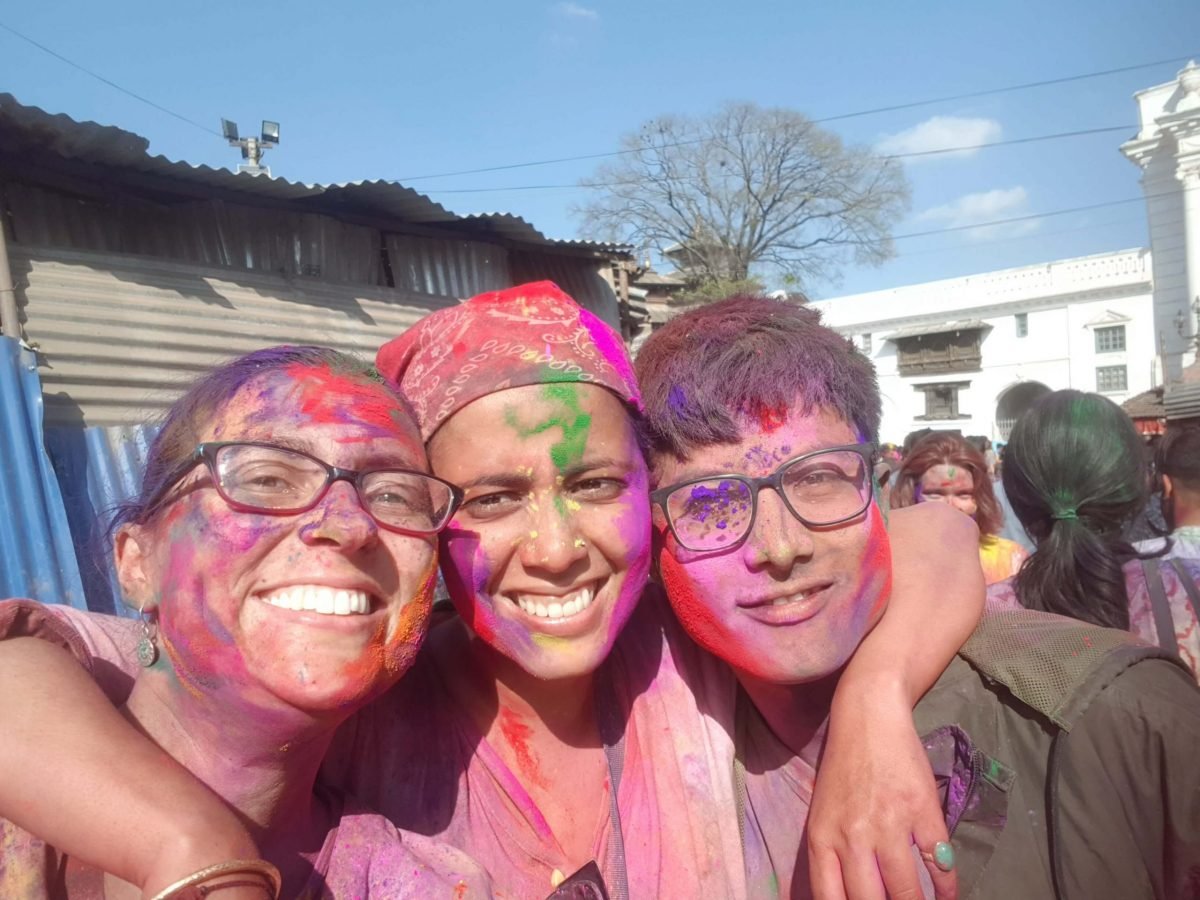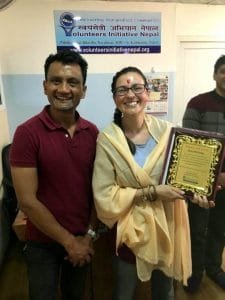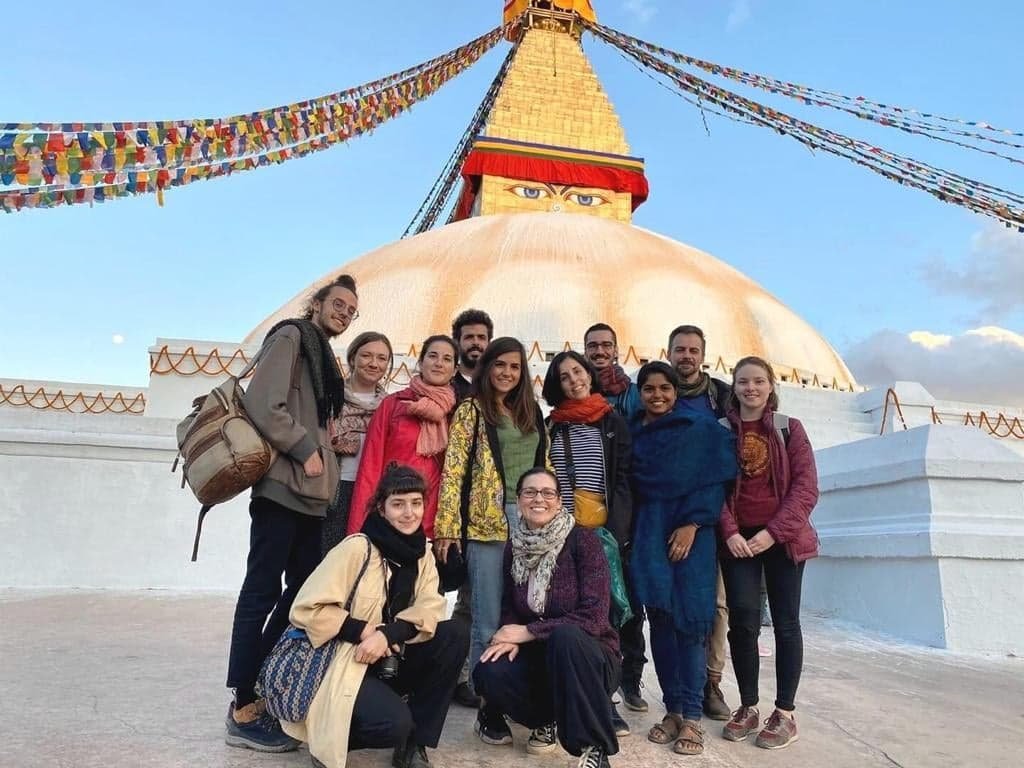It’s now 6 months since I started volunteering at Volunteers Initiative Nepal (VIN) and a lot has happened in the last three months of my deployment, since the start of 2020.
Up to that point, I have been working on reviewing content, writing a volunteering policy and strategy, mentoring the volunteer coordinators as well as helping the organisation with presentations about the benefits of volunteering. But then, the coronavirus pandemic happened and this has had a big impact on how many volunteers have cancelled their placements at VIN and how many volunteers have tried to get back home since the lockdown in March. I have been repatriated as well, with my project of volunteer management being on hold until further notice but I’m very happy with what I have achieved so far.
 The lockdown in Nepal, but also back in the UK where I live, has given me some time to think about and reflect on the last few months in Nepal with VIN.
The lockdown in Nepal, but also back in the UK where I live, has given me some time to think about and reflect on the last few months in Nepal with VIN.
Between January and March it was really busy for me because I was supporting the Volunteering Team at VIN, Dinesh, Diwakar and Subheksya, in writing their annual report for 2019. It was a great opportunity to look back over 2019 and reflect on what has gone well and identify some areas of improvement. I really enjoyed reading the volunteers’ feedback, putting together the statistics and working with the Volunteering Team on choosing the case studies. I also managed to input some ideas on the graphics in the volunteering sections, especially the map where volunteers come from. The full report can be read here: https://www.volunteersinitiativenepal.org/downloads/

It was then time to look ahead and continue planning for 2020 to make sure that volunteers are safe, supported and get the best experience possible. Obviously this was before the coronavirus has taken a hold over the whole world!
For VIN, volunteers are key to the success of each program. It’s been a priority in my deployment to help the organisation review the recruitment of national and international volunteers. This included helping the teams to map out how many volunteers are needed, in which month and for how long. Together with the Volunteering Team and the Project Officers, as well as senior management I was leading a meeting to make sure we create a quarterly timetable for the year to ensure continuity and for the greatest impact on the communities. This work was then translated into a spreadsheet, which mapped out volunteers by role, project and length of volunteering.
This visual representation showed where the gaps were and fed into the communications’ plan, to ensure advertising roles was timely and planned. Alongside the recruitment of international volunteers, this spreadsheet helps VIN to recruit local volunteers as well, as numbers of volunteers can be estimated and predicted in a more effective manner.
I’m aware that the coronavirus has had a major effect on VIN, especially because international volunteers are their main source of income. But I hope that once the coronavirus is over and people are able to volunteer abroad again, this work will help VIN with prioritising the recruitment of future volunteers.
There were another two highlights for me in the last few months.
I organised and facilitated a training session for VIN’s staff members about best practice in Volunteer Management in an intercultural setting. This included exploring how the organisation works as a team to recruit, support and exit both national and international volunteers.
The session mainly focussed on intercultural awareness and communication, a crucial element when working with volunteers from all over the world. Being aware that culture and communication styles are connected, together with different personal preferences of how to communicate, allowed the organisation to reflect on what can be done better or differently when working with volunteers.
At the same time, I was asked to review the volunteer induction for the mid and long term international volunteers. Feedback had shown that volunteers valued the induction but that there is room for improvement, especially to make it more interactive.
As mentioned earlier, intercultural communication is something I’m very interested in. And even though VIN had a session about Cultural Tips in the volunteer induction process, the volunteering team and I were keen to make it more balanced and involve national and international volunteers together for the first time. This meant that I was able to create an intercultural awareness and communication session for all volunteers VIN deals with, giving them all the chance to work together, learn together and explore their own perceptions of culture and communication in a training session.
The volunteers really engaged in the workshop by giving lots of examples where miscommunications happened, but also recognising their own cultural influences on how they communicate with others, which helped the group bond, and collaborate better as one team.
The idea of both, the staff training and the volunteer induction, was to become aware that when working with people from all around the world, we need to find a common way to convey information more effectively, in a friendly and approachable manner. I really recommend reading The Culture Map by Erin Meyer who explores these ideas in a lot of detail.
It was really pleasing to see national and international volunteers being inducted together and working together so well. The role of national volunteers is something that VIN is really keen to focus more on. I was hoping to dedicate some time in the last two months of my deployment but due to the repatriation, this element of my tasks is still incomplete.
However, it was really exciting to work closely with VIN’s Program Manager Dr.Laxmi to recruit, select and induct three new national interns in February- Dev, Manzil and Sandhya. The role of the interns was to support new EUAVs in their roles, namely Environmental Protection, Gender Empowerment and Communicate Based Development.
The recruitment of new interns and volunteers was very timely because it meant that we could celebrate Holi together- which was so much fun!
 Whether it’s interviewing volunteers, getting to know them through the induction process or supporting them in their placement- I always enjoy learning something new about people.
Whether it’s interviewing volunteers, getting to know them through the induction process or supporting them in their placement- I always enjoy learning something new about people.
That is one of the reasons I chose my career in volunteer management. I find people interesting and it fascinates me that, independent of the country of origin, what binds people together is sharing the desire to learn together and make an impact.I’m very aware and privileged to be part of some of the volunteers’ lives, even if it’s just for a short time.
And now, being repatriated and integrating back into a new routine in lockdown, I’ve been touched by the impact all volunteers had on each other. It’s lovely to see EUAVs, VIN volunteers and staff, care about each other’s wellbeing and new friendships growing across the world.
 Lastly, I’d like to thank Adice for being supportive and keeping me safe during this coronavirus pandemic. It was a difficult decision to pause my project but it was the right one.
Lastly, I’d like to thank Adice for being supportive and keeping me safe during this coronavirus pandemic. It was a difficult decision to pause my project but it was the right one.
I felt very sad to leave my colleagues at VIN. They made me feel incredibly welcome and part of the team. I really admire their passion, hard-work and commitment to supporting marginalized communities. It also still feels like I have unfinished projects and business there but I was really moved by the kind words of Bhupi, the VIN’s Founder President, when I left as we had worked very closely together over the past six months. I was also touched by VIN organising a last minute goodbye ceremony for me and I really look forward to seeing them again in future.
To find out more about VIN please follow this link: www.volunteersinitiativenepal.org
Thank you for reading!
Michaela Rossmann – European Union Aid Volunteer


